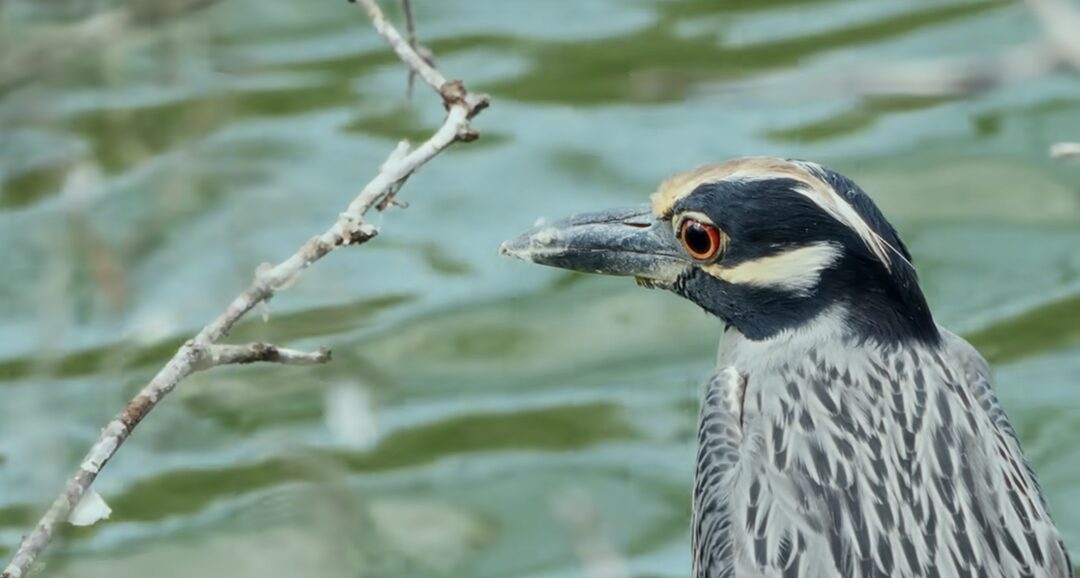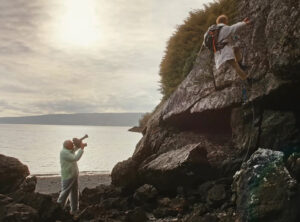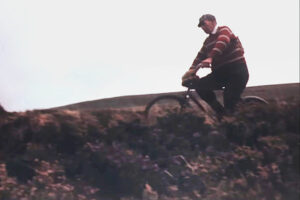Listers: A Glimpse Into Extreme Birdwatching follows two brothers on a year-long quest to see as many bird species as they possibly can. Owen Reiser and his older brother Quentin, however, are the exact sort of people you do not expect to birdwatch at all, let alone competitively. Quentin got the birdwatching bug first, and his younger brother copied him, which is classic younger sibling behavior.
They decided to plunge headfirst into the world of extreme birdwatching by going for a so-called “Big Year.” This is the challenge to identify as many birds as possible within a 365-day period. The range is limited to the contiguous, or lower 48, U.S. states. Furthermore, the bird must be alive, wild, and unrestrained.
At the time they set out, the record to beat was 751 birds.
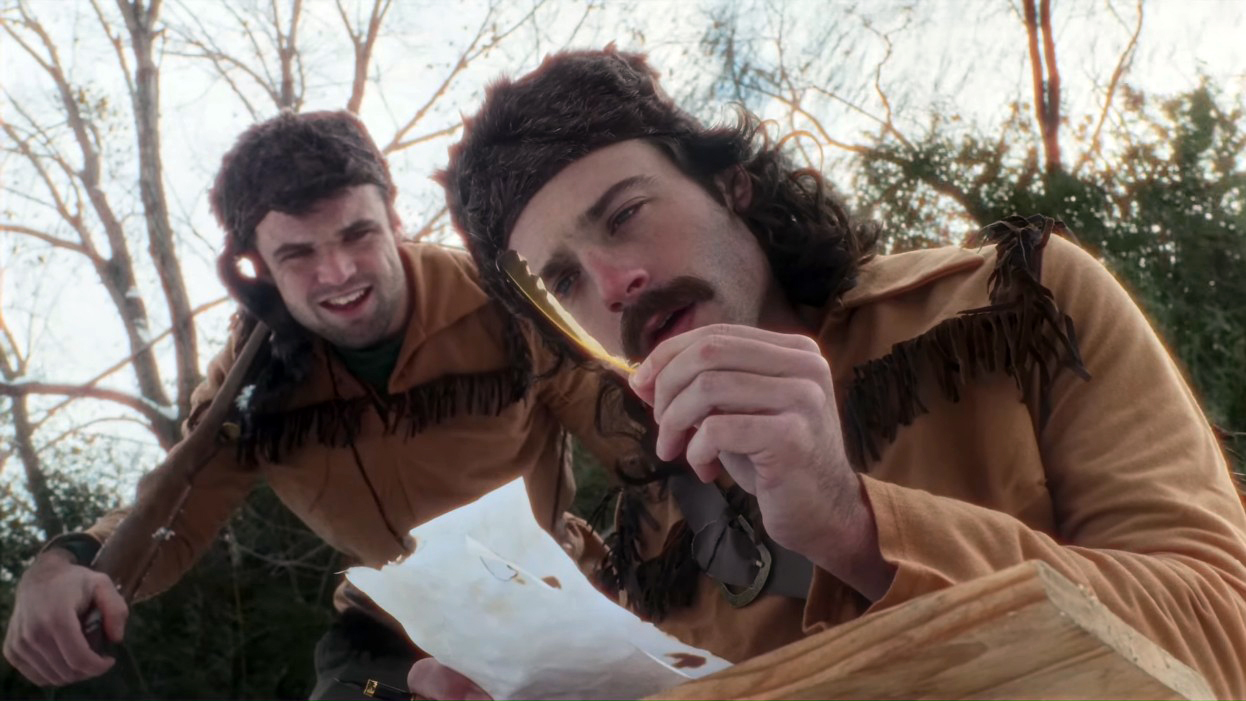
Quentin and Owen dressed as Lewis and Clark to riff on the detailed and somewhat overdramatic sighting write-ups on a birding app. Photo: Screenshot
The average extreme birder
The brothers are definite underdogs in the race. As Owen lays out in voiceover, the average Big Year competitor has been birdwatching for 24 years and can identify over a thousand birds by sight. The brothers, meanwhile, are armed with only very limited bird knowledge and a 2010 Kia Sedona with which to roam the country on a directionless avian quest.
There’s also eBird, of course, the citizen science app, to help them. During the day, the brothers take endless photographs of any bird they think might be new. Then at night they pore over the images, using online and printed guides to identify the species before recording it on eBird. The pair starts off from Tucson, Arizona, which is, by wild coincidence, my hometown.
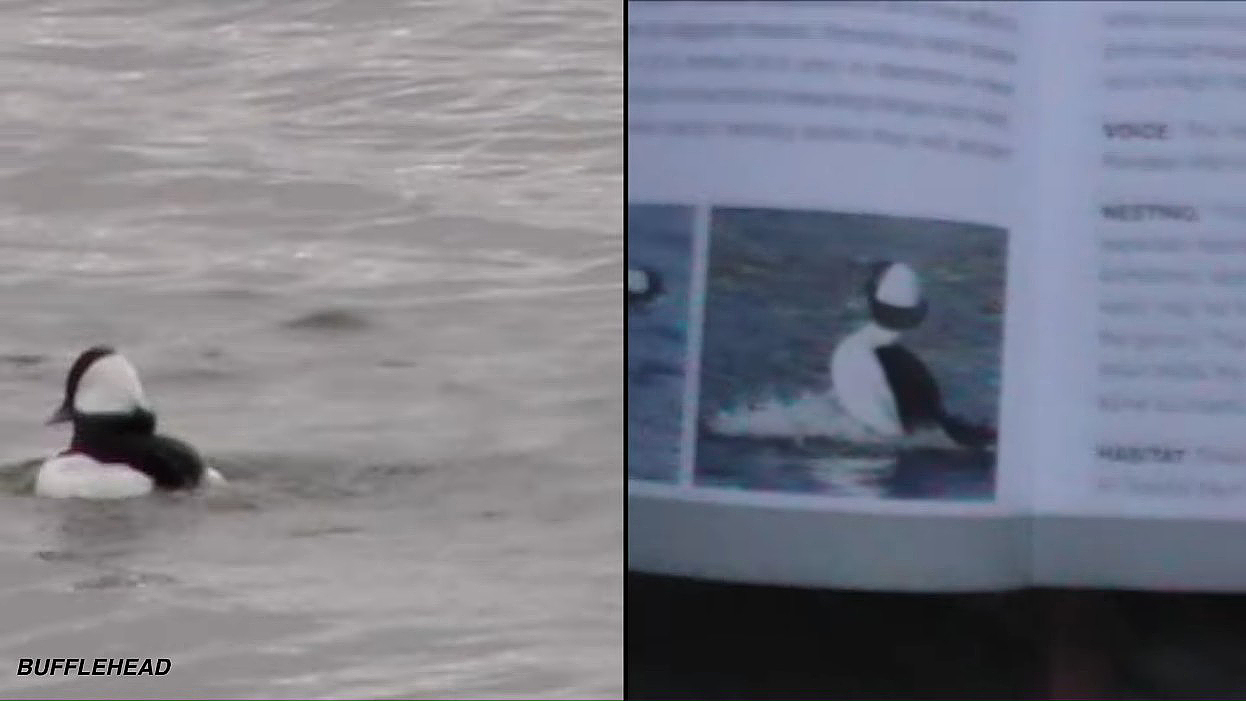
Comparing a bufflehead in the wild to the one in the guidebook. Photo: Screenshot
There’s a brief period when the app and a related app called Merlin, which identifies birdsong, are down. Forced to do things the old-fashioned way, the boys try dozens of decades-old “rare bird hotline” listings. The only one still active is run by an Amish community in Ohio.
As for van life, “it really sucks, actually,” Quentin claims. They’re taping up the van to keep out mosquitoes, incidentally eliminating all airflow. A surprising number of nights are spent in the Cracker Barrel parking lot. Showering is a rare luxury.
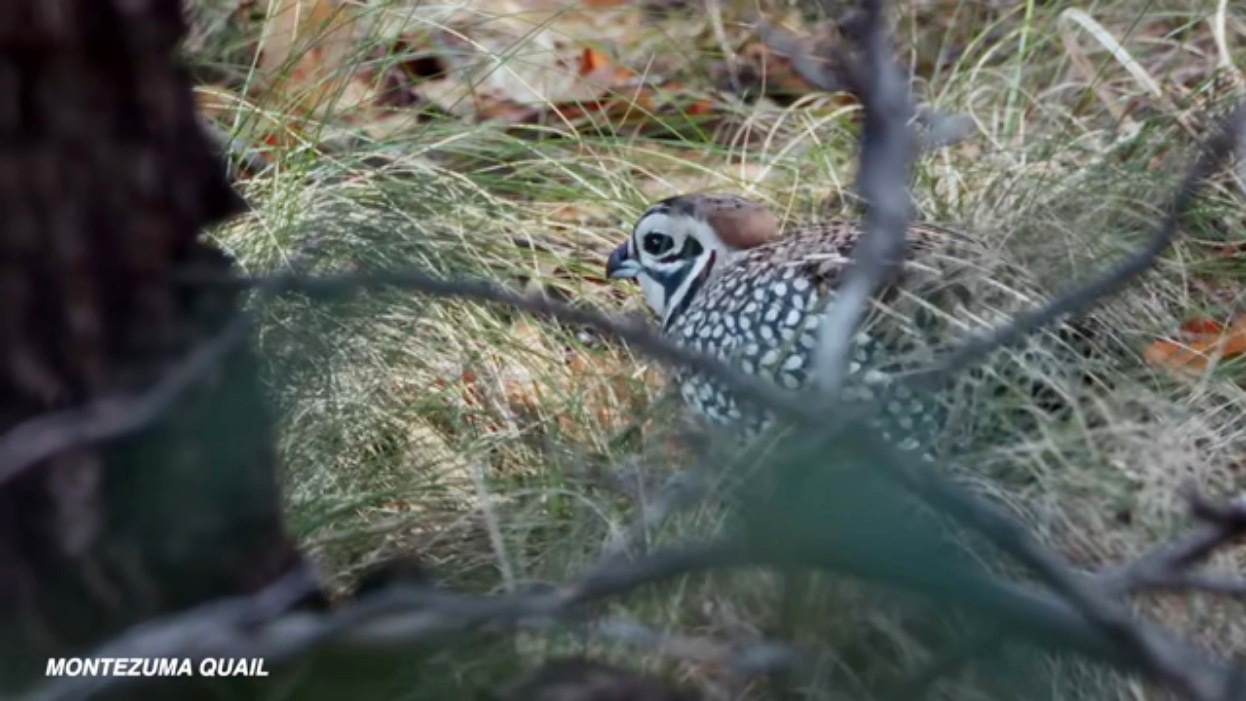
“I’d run through a brick wall for that bird,” Quentin says as they watch a Montezuma quail dust bathe. Photo: Screenshot
Bird controversy?
Amid the van life struggle and birding hunt, the pair investigates birding culture, interviewing both local and record-holding birders. They meet blackballed bird fakers, alligator attack survivors, extremely Christian birdwatching prodigies, and all manner of rabid avian enthusiasts. Along the way, at least one of them becomes a rabid avian enthusiast himself.
But as the year runs on and they pass 300, 400, 500 birds, the lifestyle begins to wear on them both. Quentin admits that while he’s come to earnestly love birdwatching, which is “fun as fuck,” the competitive aspect reduces his enjoyment.
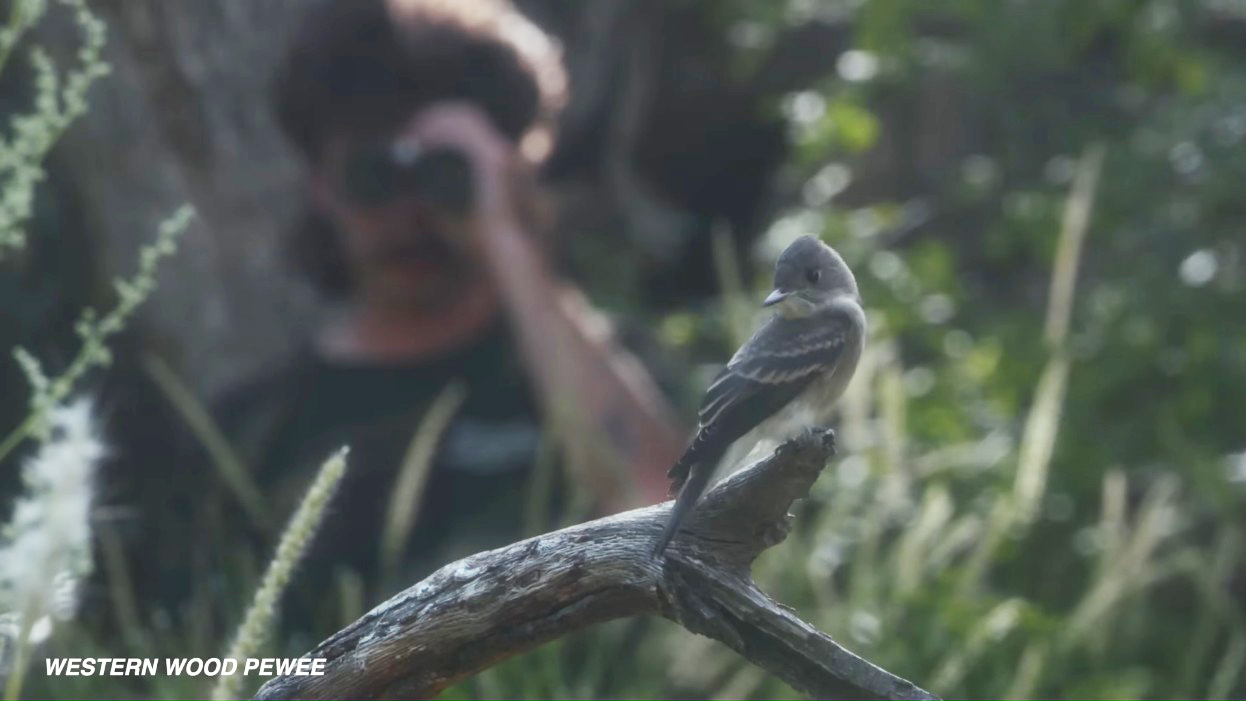
Quentin observes a Western Wood Peewee. Photo: Screenshot
Birding, their most positive interviewees say, should inspire an appreciation for the natural world and a desire to save it. Instead, competitive birders release mountains of emissions flying across the country to add something to their list.
“How many times does this happen every day?” Quentin asks mournfully, as they gaze at the remains of a killdeer nest destroyed by heartlessly applied lawn mowing.
“This is right up there with 9/11,” Owen agrees.
By the end of the year, cumulative exhaustion and ethical quandaries have left them feeling cold regarding chasing rare birds. Instead, they decided to focus on actually watching the birds instead of ticking them off a list. They go see flamingos in Florida.
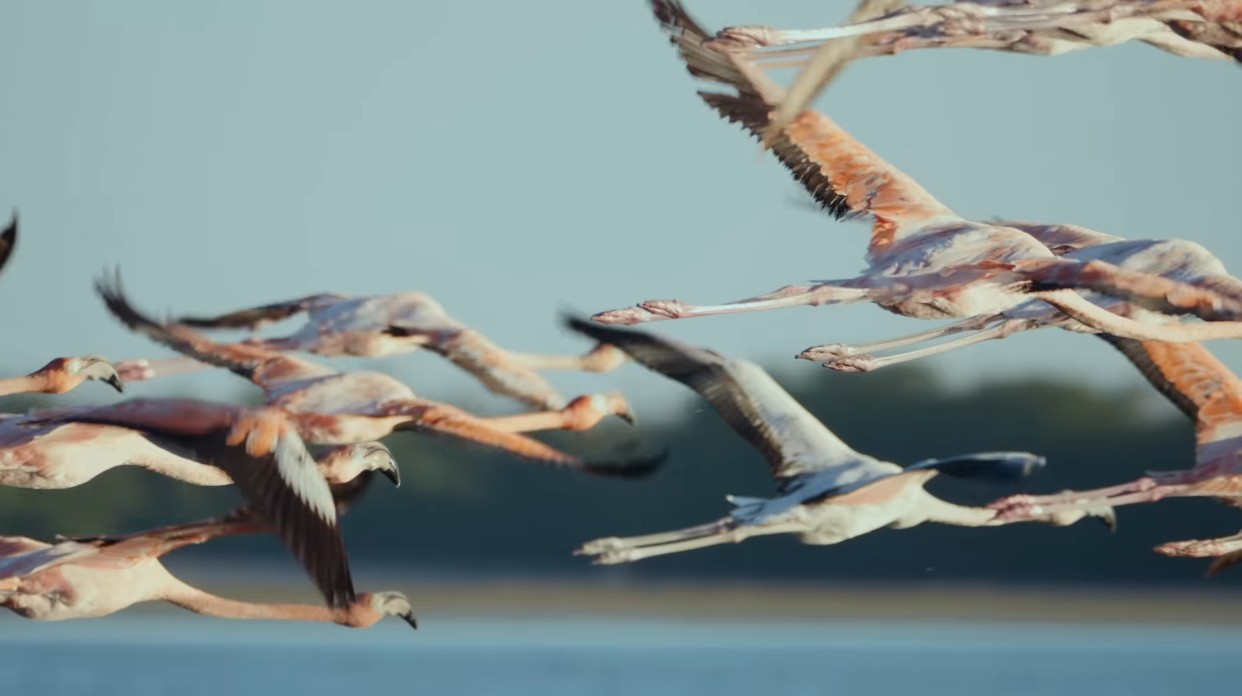
“Still cool,” the brothers affirm as the flamingos take flight, despite already being on the list. Photo: Screenshot
In the end, the brothers finish in 23rd place with 579 birds. They award themselves first place in the Kia Sedona-based Big Year category.
